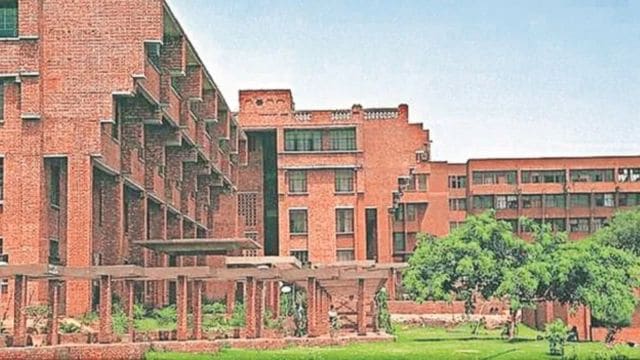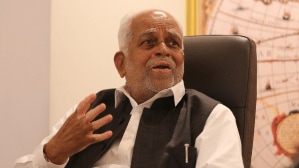JNU announces formation of committee to examine installation of biometric entry gates
Tensions peaked when JNUSU president Nitish Kumar and student leader Manikant allegedly sustained injuries while attempting to stop contractors from installing the glass-panelled gates at the inner and outer entry points.
 Tensions escalated after JNUSU president Nitish Kumar and student leader Manikant allegedly sustained injuries while attempting to stop the work (File Photo)
Tensions escalated after JNUSU president Nitish Kumar and student leader Manikant allegedly sustained injuries while attempting to stop the work (File Photo)Jawaharlal Nehru University (JNU) on Monday issued a notice announcing the formation of a committee to examine the installation of biometric entry gates at the Dr. B. R. Ambedkar Central Library.
The committee, the Registrar said, will consult “all stakeholders” and submit its recommendations. Until then, the university has ordered a status quo, effectively halting further work on the gates.
The notification came after days of mounting tension, as the JNU Students’ Union (JNUSU) launched an indefinite sit-in at the library. Student leaders described the proposed gates as a “surveillance apparatus” that, they said, would fundamentally alter the ethos of openness on campus.
Tensions peaked when JNUSU president Nitish Kumar and student leader Manikant allegedly sustained injuries while attempting to stop contractors from installing the glass-panelled gates at the inner and outer entry points. Students also alleged that they were hurt by glass shards while they tried to stop the work.
The administration, however, defended the move as a necessary security measure after “derogatory, casteist and misogynist” graffiti was discovered on campus property last week. Two former students were subsequently barred from campus for allegedly inscribing the remarks, which officials termed a “serious violation” of the JNU’s ethos of inclusion.
In its statement Sunday, the union had outlined a series of demands beyond halting the biometric project: revoking the facial recognition system entirely, increasing seating capacity through a 1,000-seat annexe library building, improving accessibility for students with disabilities, building tactile paths from schools to the library, renovating Dholpur House with air-conditioning, ensuring 24/7 access to reading rooms, upgrading infrastructure with new desks and book scanners, and expanding availability of learning aids and software.







